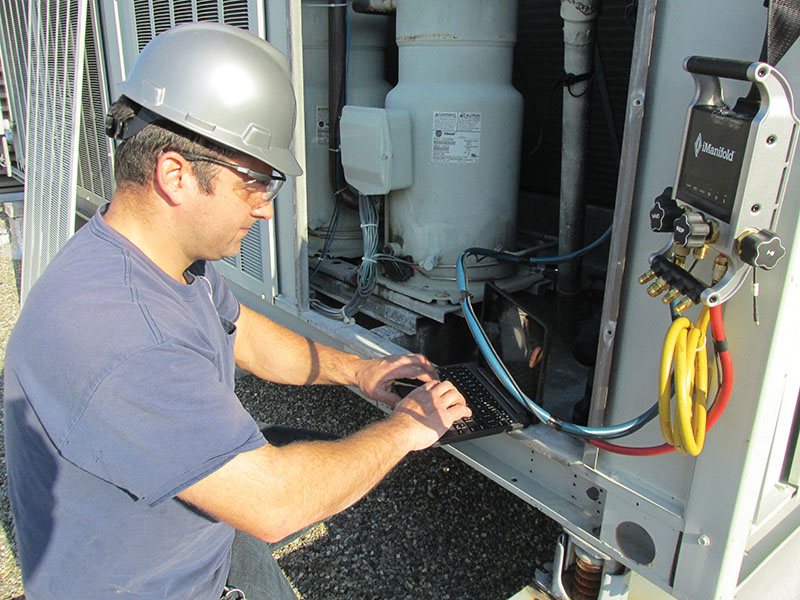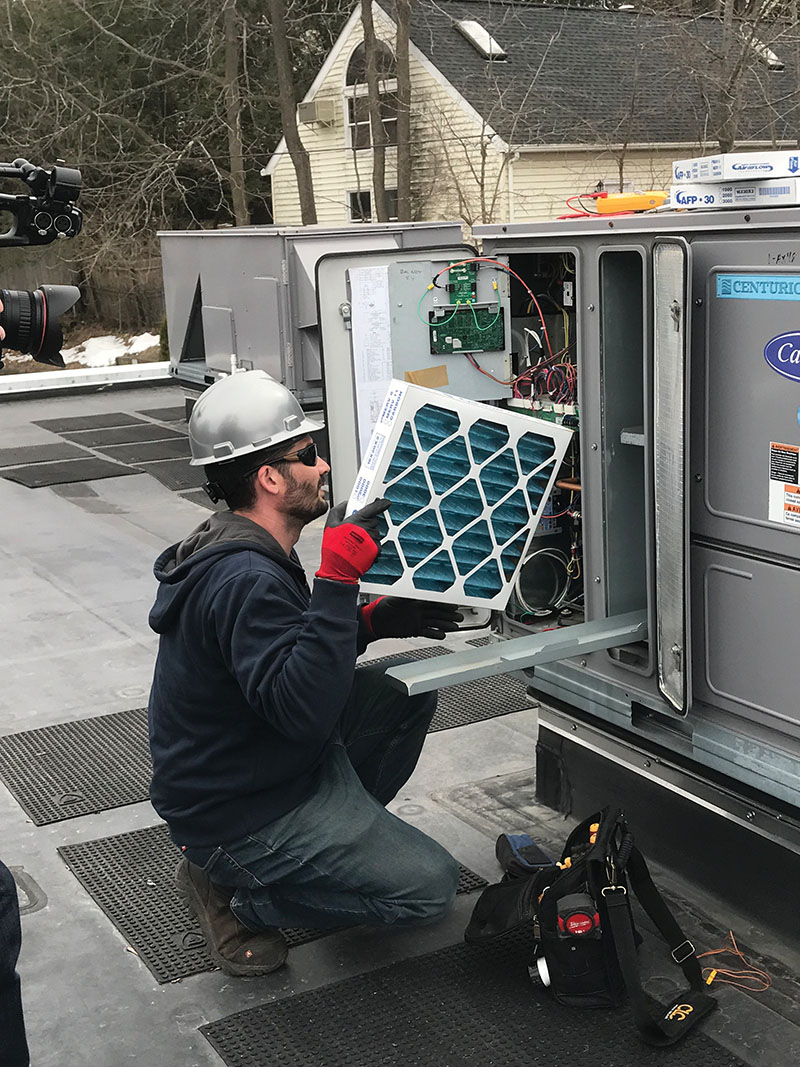Preserve your building’s reputation by being proactive–preventative HVAC maintenance - by Bud Hammer
When someone is not comfortable in a commercial building, whether they are too hot or too cold, they will make their frustration known. No one ever says, “I am so comfortable today!” If occupants are wearing their coats with the space heater under their desk on high in the winter and sweating with a fan continuously blowing warm air in the summer, your building is not running at its optimum performance.
There are two fundamental operating approaches commercial owners use and live by today. Are you more proactive or reactive in the way you inspect and maintain your building’s HVAC system throughout the year? According to The Federal Energy Management Program’s Operations and Maintenance (O&M) Best Practices Guide, 55% of all building owners and managers approach this financial process reactively, meaning they only fix something once it breaks and it is too late.1

System interruptions can cause a host of issues, not only are they inconvenient, but also potentially expensive. Clean, well operating systems will provide reliable, efficient service during the extreme weather days. Dirty or old, battered systems will breakdown more often and continually become less efficient with age. If your building is not running properly, it can damage the property owner’s reputation and facility manager’s credentials. Thanks to the internet and review websites such as Glass Door, Google, Yelp and Trip Advisor, individuals will voice and express their anger if an office, hotel room, gym, restaurant, etc. was too hot or cold.
Periodically maintaining your commercial building’s HVAC equipment will save your company money by lowering utility bills, extending the life of your HVAC system, enhancing employee performance and reducing the potential of expensive repairs. Routine preventative maintenance and mid-season HVAC equipment inspections can help predict costly failures before they occur.
A part of being proactive in your building is asking your HVAC service provider if they can offer a preventive maintenance agreement. A service agreement will ensure your equipment is ready to take on cold winter nights and hot summer days. A team of highly-trained technicians will visually inspect equipment, lubricate moving parts, change belts/filters, clean dirt/debris and evaluate operation to help prevent future breakdowns.

Benefits of implementing an HVAC preventative maintenance agreement include:
• Increased efficiency and performance;
• Prolonged life of equipment;
• Improved air quality and healthier environment;
• Priority service;
• Discount on parts;
• Lower labor rates on installations and repairs;
• Ongoing scheduled maintenance; and
• Peace of mind.
In addition to a service agreement with your HVAC provider, all facility managers should develop a disaster plan for all personnel to follow in case an event should strike. A well-advised proactive plan should include:
• Reaching out to a damage restoration firm to establish a go-to resource in case they are needed at night, on weekends or holidays;
• Contacting your insurance agent to discuss what events are covered to make sure that the facility can get back to operation as soon as possible with limited business interruption;
• If possible, setting up remote access to office computer systems and offsite data back up so the business can continue operating while the office is unexpectedly closed; and
• Evaluating heating systems and add freeze protection such as antifreeze or low temperature safeties to safeguard freeze ups and failures.
At the end of the day, it is about maximizing your ROI and making sure your tenants and occupants are happy and comfortable (even if they do not compliment and admire the temperature and air quality every day). Remember, it is always less expensive to be proactive than reactive.
1. 5.2 Reactive Maintenance. Operations & Maintenance Best Practices A Guide to Achieving Operational Efficiency, by Federal Energy Management Program (FEMP), U.S. Department Of Energy, 2010, www.energy.gov/eere/femp/downloads/operations-and-maintenance-best-practices-guide.
Bud Hammer is the president at Atlantic Westchester, Inc., Bedford Hills, N.Y.
Over half of Long Island towns vote to exceed the tax cap - Here’s how owners can respond - by Brad and Sean Cronin


Properly serving a lien law Section 59 Demand - by Bret McCabe

Oldies but goodies: The value of long-term ownership in rent-stabilized assets - by Shallini Mehra

How much power does the NYC mayor really have over real estate policy? - by Ron Cohen







.png)

.gif)
.jpg)
.gif)